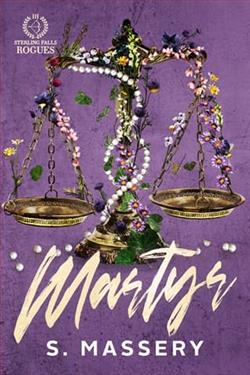Page 16 of Last Letter Home
‘Always a pleasure to help the ladies!’ The gentleman beamed from the door when they thanked him. The whistle blew and the train edged into motion.
By the time they turned their attention to the piles of cases, a young man had magically appeared. He was smartly dressed, with a neatly wrapped striped scarf. His smooth blond hair was cut in military fashion, and his moustache did not quite disguise a certain tightness around his perfectly moulded lips.
‘The Baileys, I presume?’ His voice was louder than necessary, and he touched his hat as if in salute. His chestnut eyes surveyed them with hesitation.
‘That’s right,’ Sarah’s mother said haughtily. ‘And who, may I . . . ?’
‘Aunt Belinda, I’m Ivor.’
‘Ivor, dear, of course,’ she said more warmly, shaking his hand. ‘You must excuse me, it’s so long since I’ve seen you.’ She introduced the girls to him. Sarah felt the grip of his hand, and his eyes held hers in a way she found pleasantly disturbing. To Diane, who glanced at him shyly, he merely nodded.
Their mother was speaking again. ‘The last time we saw you, heavens, it must have been . . .’
‘I was twelve apparently. I’m afraid I don’t remember it, though I wish I did.’ He gave a gallant smile. There was a tension in him, Sarah realized. He thought before he spoke, as though he was watching himself, which intrigued her.
‘Oh, but I do remember you.’ Her mother’s bright voice grated. ‘It was the autumn I brought the girls home, because you were starting school, Sarah – you were eleven, weren’t you? – and Diane was nine. I believe you had recently started at Downingham, Ivor. Your school uniform was crisp and new, and you told me very confidently that your ambition was to follow your father into the regiment.’
‘Did I really? What a precocious little oik I must have been.’
Mrs Bailey gave one of her rippling laughs that Sarah hated, the one she reserved for impressionable men. ‘On the contrary, I found your directness refreshing. And, after all, that is exactly what you’ve done. Your mother wrote that you’re already a lieutenant. Congratulations.’
‘Thank you.’ Before he turned to look for a porter, Sarah saw that Ivor Richards was blushing.
There had been plenty of young men of his type out in India susceptible to Mrs Bailey’s charm, boys far from the stern eye of their mothers and starved of female company. Junior officers eager to make their mark, but clearly carrying around with them a burden of unhappiness, usually to do with parental expectation. Sarah wondered whether this was the case here. She and Diane didn’t know the Richards family well, but they’d always known about them. Major Richards had been a close friend of her father’s from military training days before the Great War. The injuries he’d sustained in that terrible conflict had ended his army career and now the family lived in a house on an estate on the Norfolk–Suffolk border, where the Major was Estate Manager.
‘I left the motor right outside.’ Ivor led the women to the station exit, leaving the porter to manage the luggage. ‘Shall I carry that box for you, Miss Bailey?’
‘No thanks, it needs to be kept in a certain position,’ Sarah replied. ‘Which regiment are you, Lieutenant?’
‘The Norfolks, like my governor. Your father, too. I was sorry to hear about his death. But please, it’s Ivor. May I call you Sarah?’
‘Yes, of course.’
This time the smile was spontaneous. ‘Good. Here we are.’
His vehicle was an old shooting brake that looked as though it usually carried muddy spaniels. Mrs Bailey eyed it with distaste.
‘It seemed sensible to bring this, given the luggage,’ Ivor said by way of apology. He dusted off the front passenger seat and held the door while Mrs Bailey somewhat gingerly got in. He helped the porter cram the boot with cases and soon they were off, driving with caution down the icy roads, the girls hanging onto the straps in the back, an over-efficient heater scorching their shins.
‘How far is it?’ Diane asked above the hum of the engine.
‘Fifteen minutes away,’ Ivor called back.
‘It’s only three or four miles,’ Sarah told her. ‘Do you not remember?’
‘Obviously not,’ Diane hissed. ‘I haven’t seen the Richards for years, have I?’ Their boarding school had released her at sixteen as she had demonstrated so little interest in her studies, and she’d returned to India on the boat with Sarah, who had just finished sixth form. It was envisaged that the girls could train as typists in Bombay if they wanted something to do, but otherwise they could keep their mother company until such a time as they found husbands. Anyway, they knew it would only be a few years before Colonel Bailey retired and they might all return to England together.
It had been Diane who had found him, one blazing hot Sunday in July.
As the final preparations were underway for her twenty-first birthday party, Diane had stumbled in from the garden, chalk-faced with shock and babbling to Sarah and her mother to be quick. She had come across her father lying senseless on the path, the glass of gin he’d been drinking smashed on the gravel. He had suffered a massive heart attack and although the doctor arrived smartly, nothing could be done.
‘Mother is meeting us at Flint Cottage,’ Ivor was explaining to Mrs Bailey. ‘There’s a man cutting the holly bush in front. Not exactly the weather for it, but your tenants had let it run riot. We could barely reach the door.’
‘It’s good of your parents to arrange matters,’ Mrs Bailey said, clutching at the door handle as the car slid on a tight corner. ‘It was impossible for us to organize anything from India . . .’
‘They were glad to,’ Ivor said with warmth. ‘It was the least any of us could do in such sad circumstances. I’m afraid, though, that because the Watsons only vacated the place last week they left things in a pretty poor state. It’s been something of a rush getting it habitable for you.’
‘Your mother said that in her letter. I suppose we should have given the Watsons more notice.’















